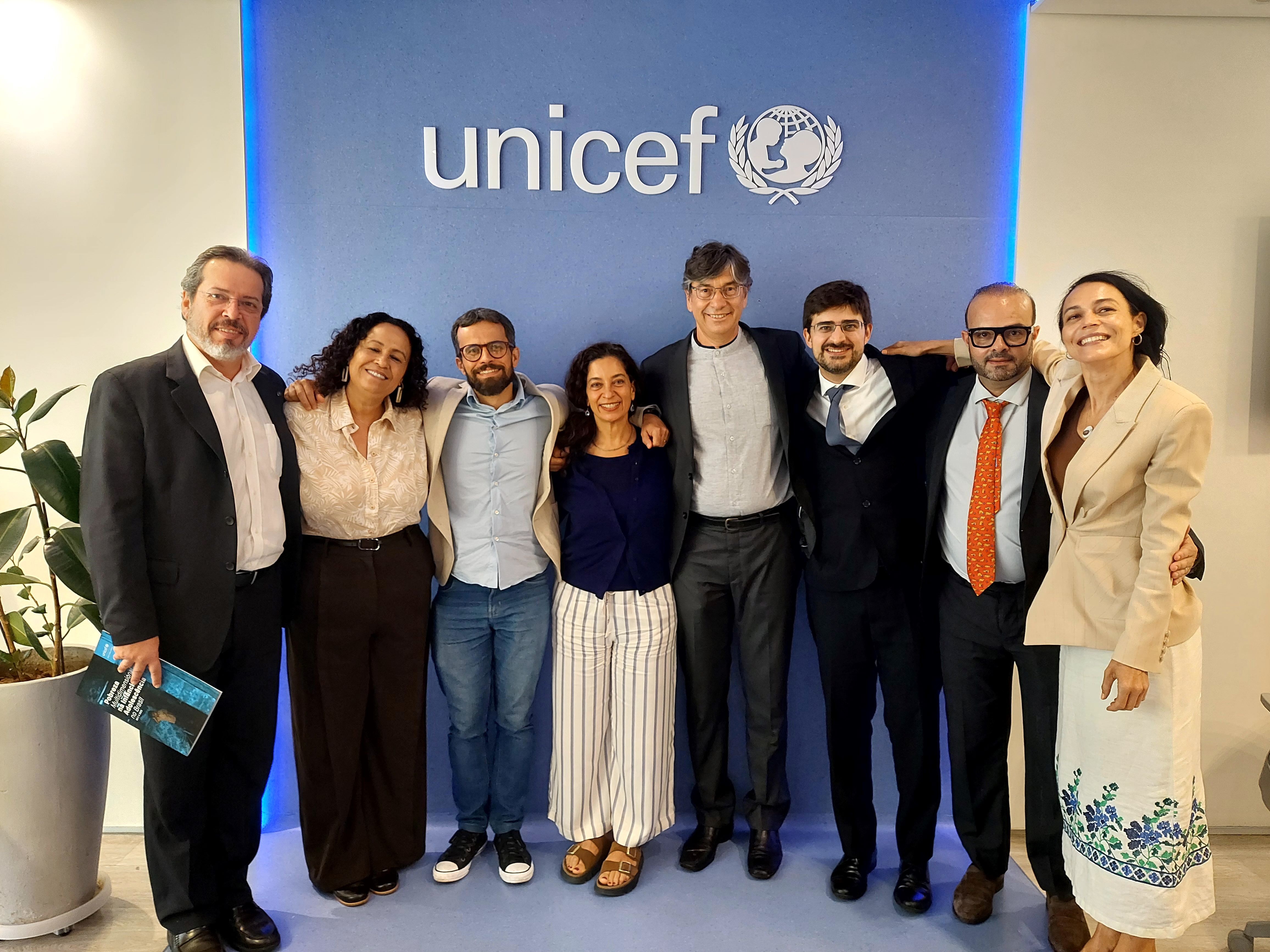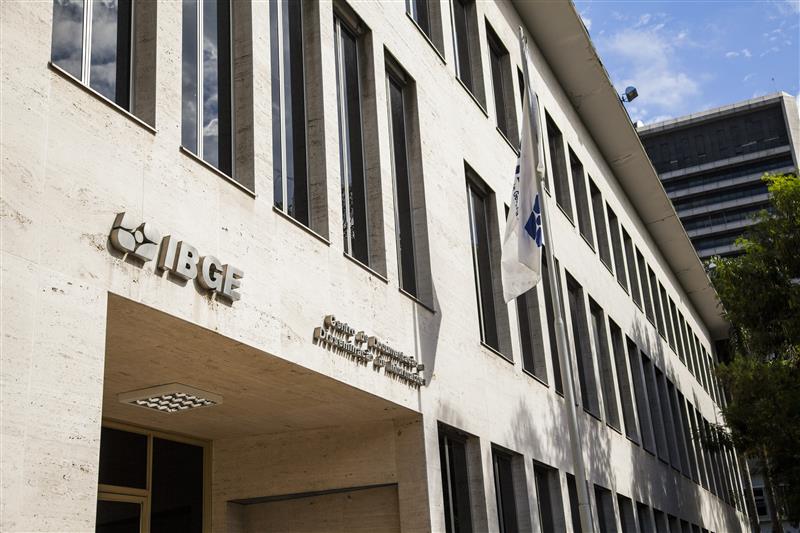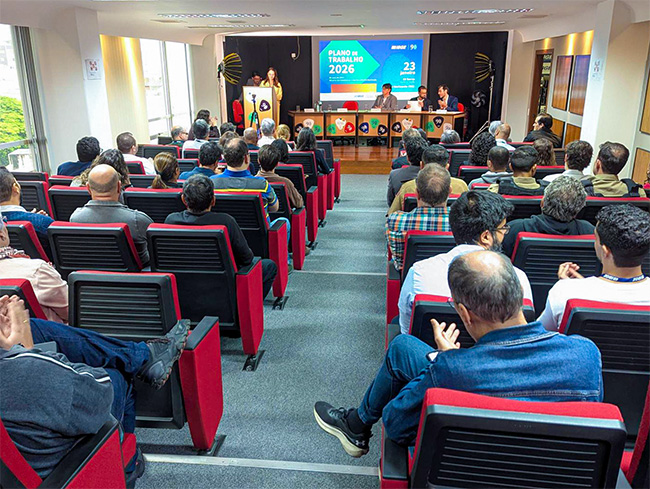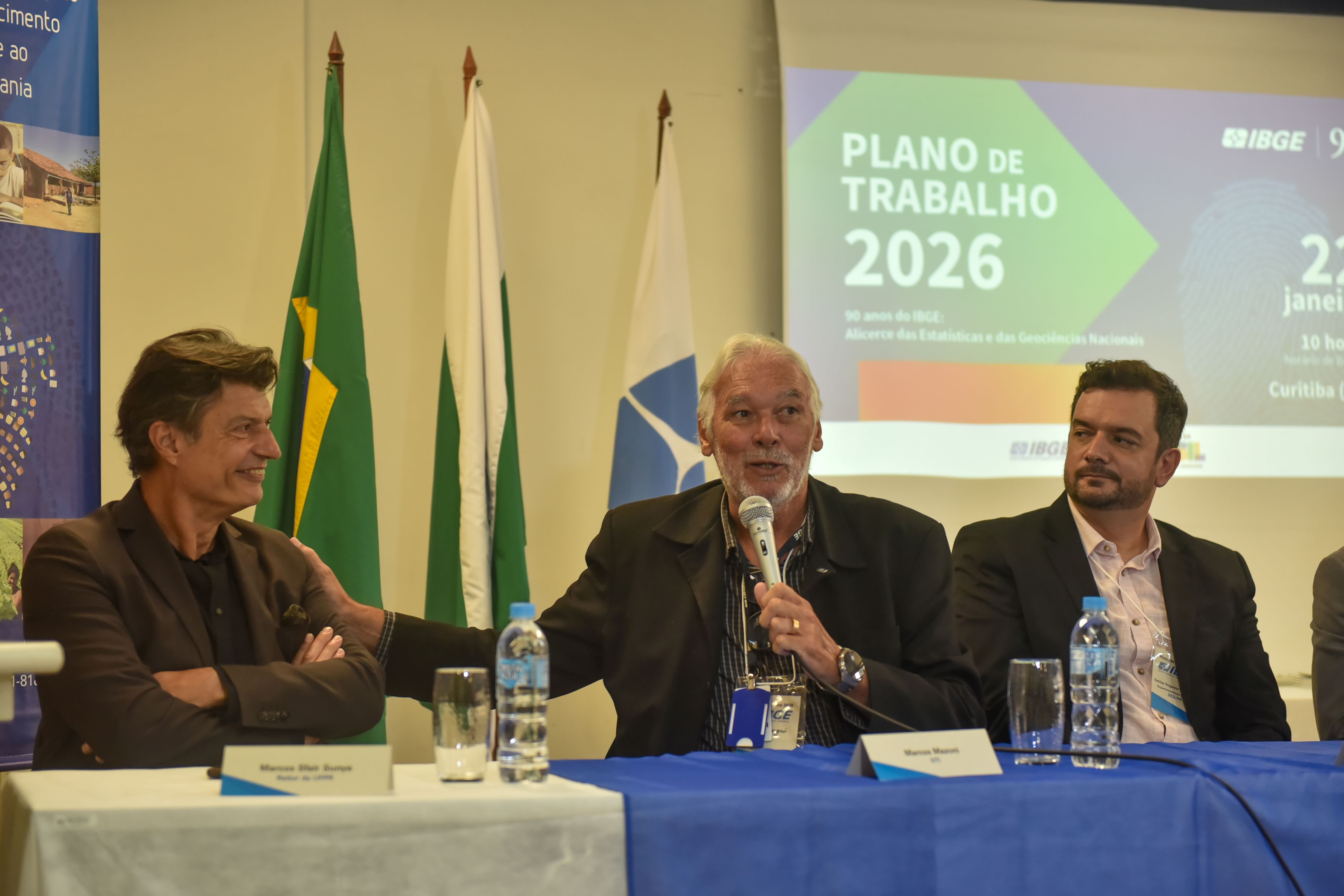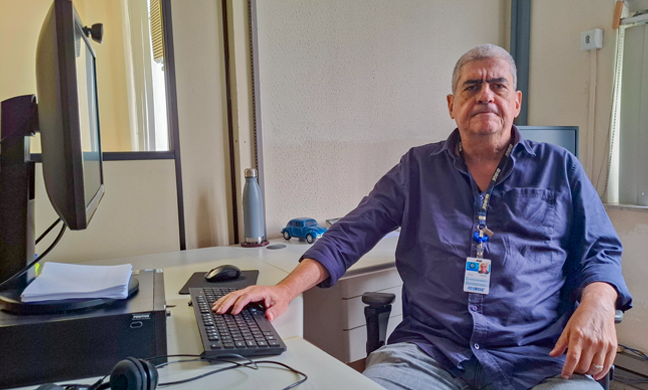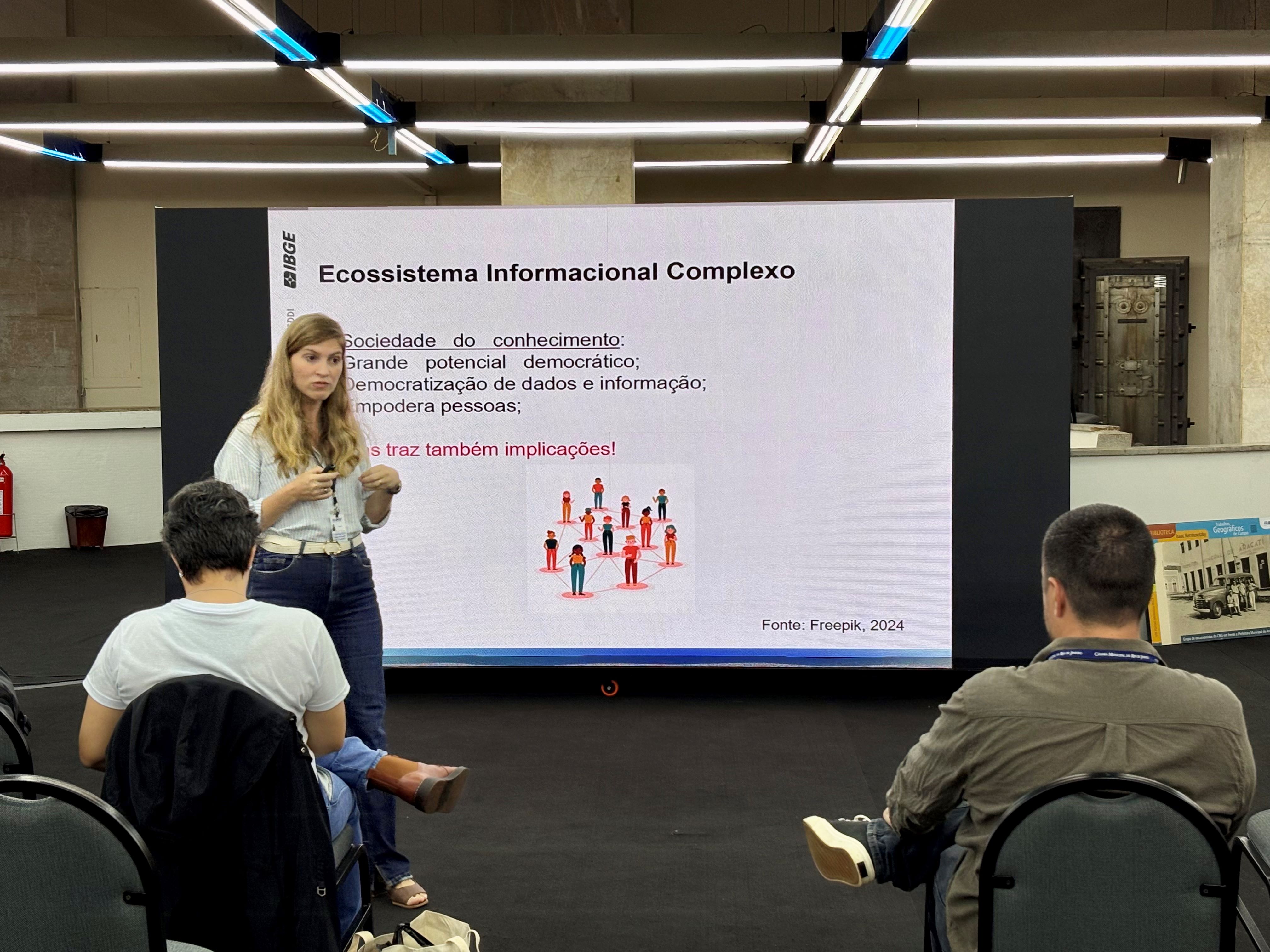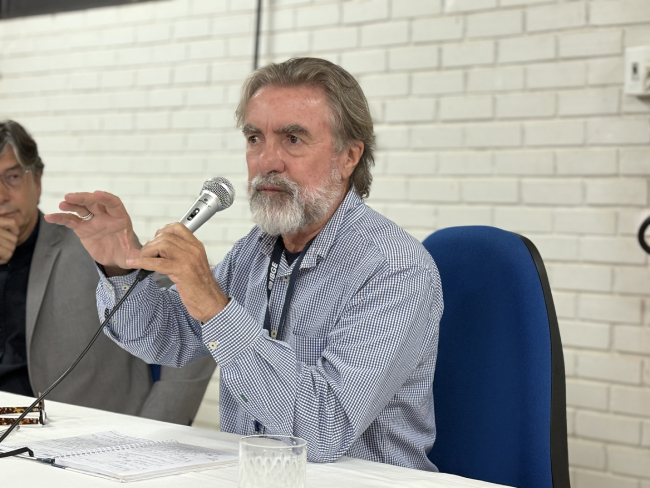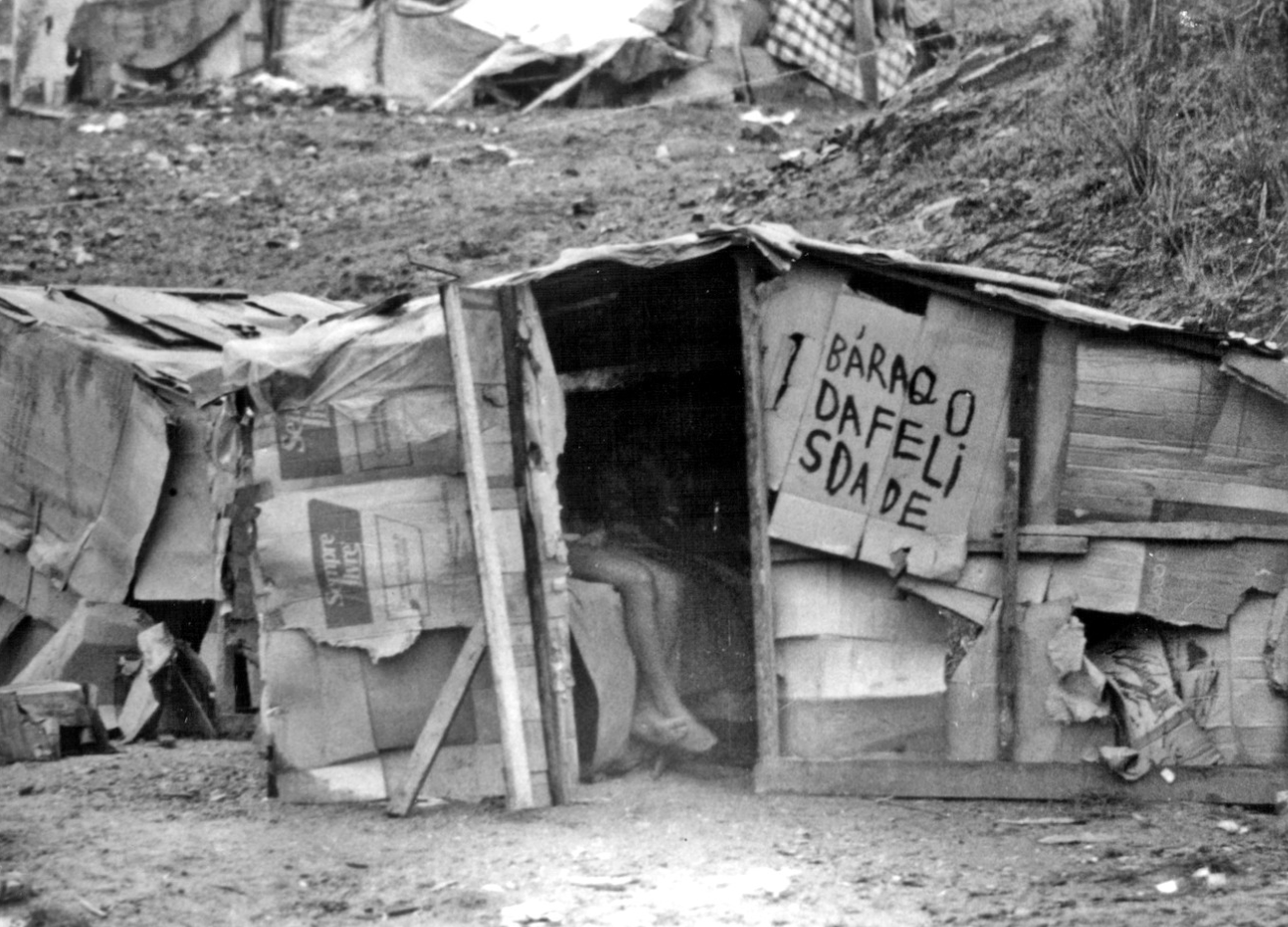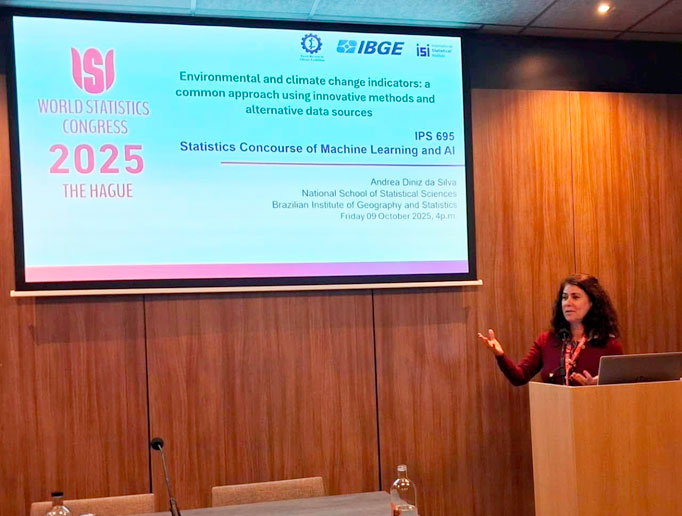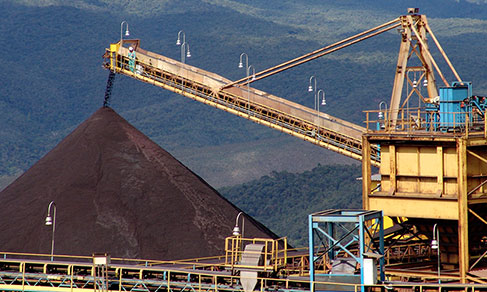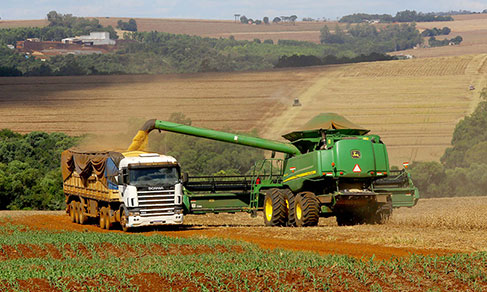2022 Census
2022 Census: IBGE releases in Maceió (AL) the urban characteristics of housing unit surroundings
April 17, 2025 05h32 PM | Last Updated: April 24, 2025 01h44 AM
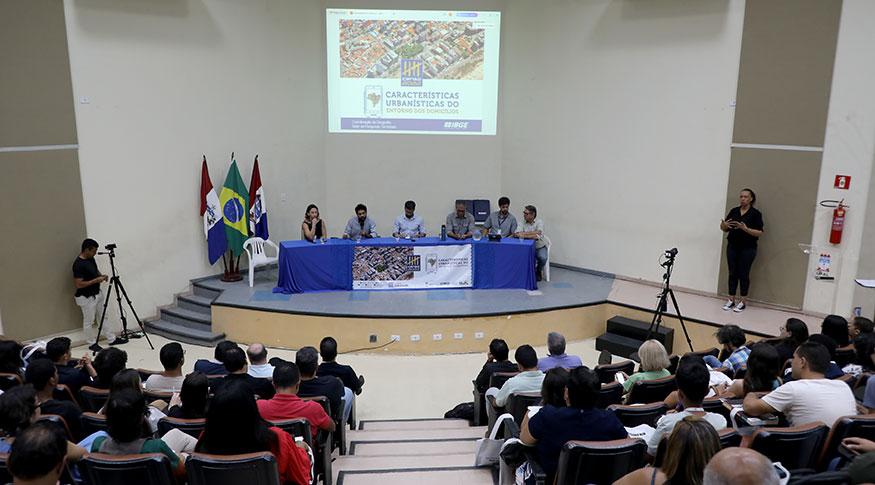
The Brazilian Institute of Geography and Statistics (IBGE) released, on Thursday (17), data relative to the 2022 population Census: Urban Characteristics of housing Unit Surroundings. The event was held at the autidorium of the Rector's Office at the federal University of Alagoas (UFAL), located on Avenida Lourival Melo Mota, Tabuleiro do Martins neighborhoods, in the caapital, Maceió. The release was attended by 300 people, including authorities, IBGE civil servants and other guests and was streamed online on Digital IBGE and on the Institute's social media channels.
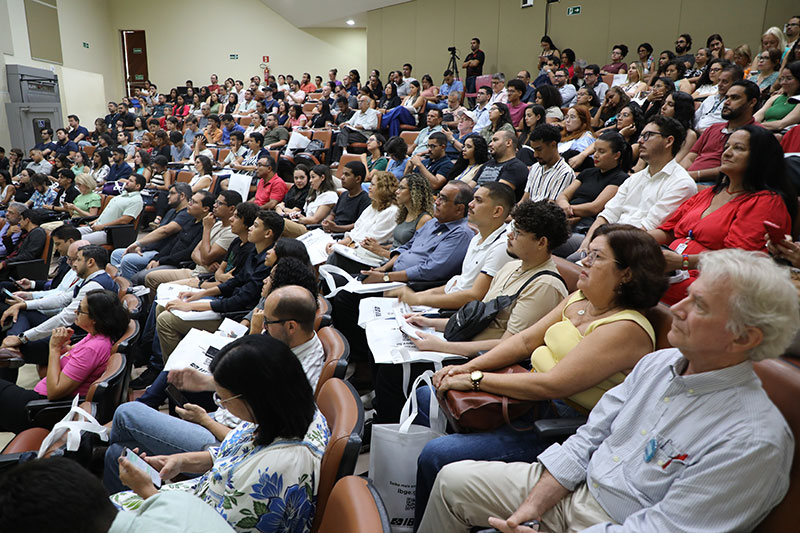
The opening session was attended by the IBGE director of Surveys, Gustavo Junger, the deputy director of Geosceiences, Gustavo Cayres, the Population Census coordinator, Giulia Scappini, the rector of UFAL, Josealdo Tonholo, and the IBGE State Superintendent in Alagoas, Alcides Tenório Junior. The results were presented by the IBGE analysts Felipe Borsani, Maikon Novaes and Jaison Cervi.
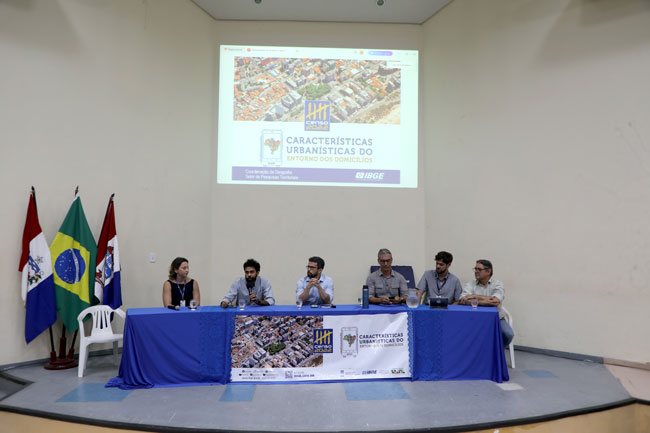
Junger highlighted that the data presented in the event “represent a revolution in the production of public policies and in the academic community.” He also compared the Population Census to a war operation given its logistics. “We traveled millions of kilometers in order to reach the 90 million housing units visited. This operation was also marked by Covid-19, besides subfunding challenges. We thank all those who participated and helped in the release of these results.”
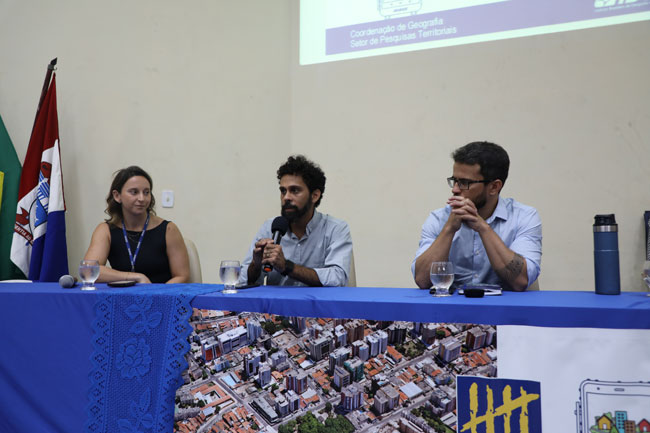
In the sequence, Gustavo Cayres highlighted that this release presents information about topics such as accessibility, circulação, drenagem e arborização flow, drainage of urban areas. “That is closely related to our everyday life, considering that Census data reveal that the majority of the population lives in the cities,” the director of Geosciences.
Giulia Scappini highlighted the special tone of the release. “It brings great possibilities to public agencies and international bodies, fostering considerations about how to strenghten these inclusive and sustainable public policies, which places Brazil on the path of development of cities."
Urban characteristics of housing units
Besides the presentation of data, the analyst Felipe Borsani explained the survey methodology, mentioning elements and urban aspects, the survey population, survey units and collection tools. “We use an electronic questionnaire to register data. This device was divided into three parts, and surveyed the existence of elements in the surroundings and characteristics regardless of their conservation state, functioning and efficacy.”
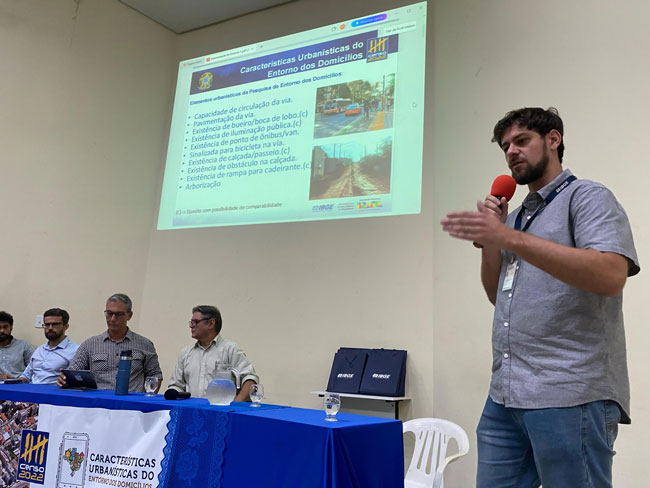
It was then analyst Maikon Novaes’ turn to present the survey results. “The survey of characteristics of housing unit surroundings observed ten items related to road flow capacity and road pavement, existence of manhole, street lighting, bus or van stop, obstacles on the sidewalk, wheelchair ramp and foresting,” Novaes explained.
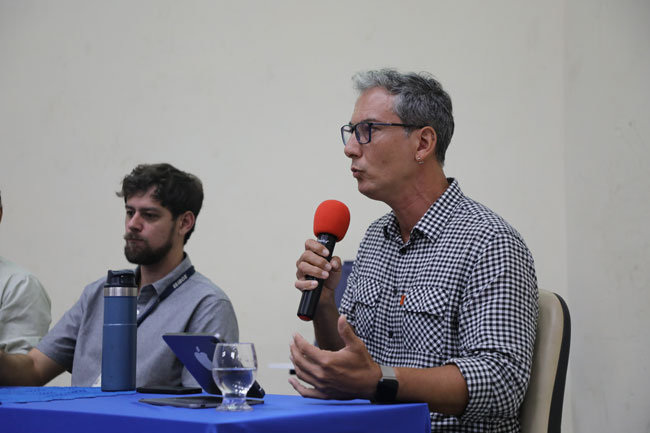
Data show that 32.8 million persons live in housing units located on roads with sidewalks free of obstacles, which is equivalent to 18.8% of the total population in urban areas, a new item in the survey. The lowest percentages were found in Maranhão (4.7%), in Piauí (4.9%) and in Acre (5.6%). Rio Grande do Sul, with 28.7%, Mato Grosso, with 27.4% and São Paulo, with 25.5% stood out with positive results.
Another aspect approached was in relation to road structure. A total of 158.1 million persons (90.8%) living in areas with a flow of trucks or buses. All the states had a predominance of this type of road, being 98.0% in Tocantins and 76.9% in Amapá, the highest figures found. For further information, click here.
The manager of Territorial Surveys and Characteristics, Jailson Cervi, presented information on characteristics of the population and of housing units and their urban surroundings. Some information available referred to indigenous persons living in housing units with the lowest percentage of obstacles on the sidewalk (52.4%), however, with the highest percentage of residents (6.4%) on roads with less accessibility – maximum flow capacity for motorcycles, bicycles and pedestrians.

“This population has the lowest percentages of all the items surveyed, such as paved roads (72.2%, manholes (36.0%), street lighting (90.4%), bus or van stops (4.8%), bicycle lanes (1.1%), sidewalk (63.7%), wheelchair ramp (9.8%), foresting (58.5%).”
The manager also showed data about the state of Alagoas, such as maximum flow capacity for motorcycles, bicycles and pedestrians, which is 4.9% in the state, turning it into the third main one in the Northeast and the sixth in the country. Street lighting was another item observed, in 98.5%, which places Alagoas as the leader in the Northeast and the third main one in Brazil.
IBGE signs cooperation agreement with the Federal University of Alagoas
The Brazilian Institute of Geography and Statistics signed a term to grant use of the building for the advanced data facility of the Institute’s Superintendency in Alagoas. The rector of UFAL, Josealdo Tonholo, and the IBGE State Superintendent in Alagoas, Alcides Tenório Júnior signed the document on behalf of their respective institutions.

Tonholo highlighted that this term “represents proximity and cooperative work of extreme importance for both institutions. We have seen in this event the richness of information related to the urban segment and from the perspective of economy and accessibility. The information refers to all our undergraduate courses, Education, Law and Architecture, for example, being a cross-cutting issue to all areas of Knowledge. This partnership will be a catalyst to high quality research of great impact on our territory.”
Alcides Junior expressed his satisfaction with the event and his gratitude towards all participants. “I specially thank our IBGE employees, the one working now and all those who participated in the Population Census. This latest edition was the most challenging in years and we succeeded in producing results thanks to the professional abilities of our technical team.”
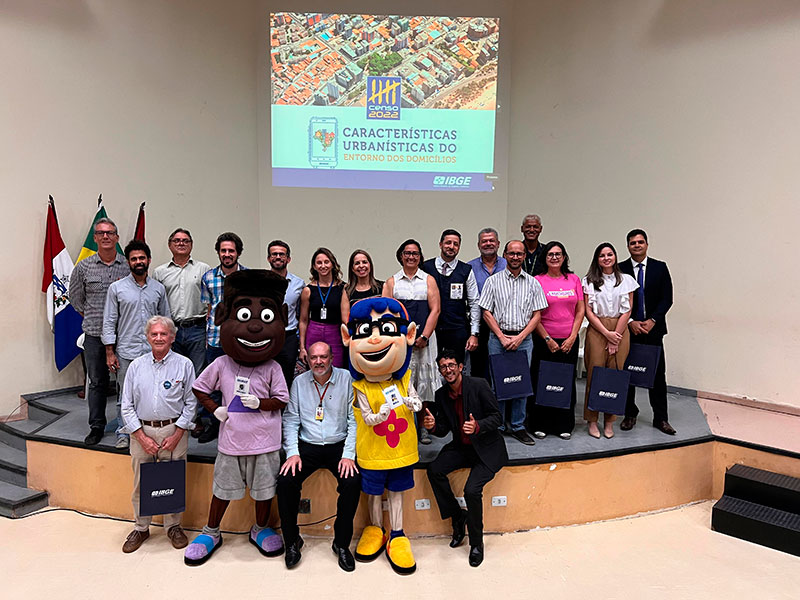
Workshop for public managers, educators and students in Maceió
In the afternoon, the IBGE conducted the workshop A territory of information: potentialities of data in the 2022 Census, aimed at public managers, educators and students. In this free workshop they present technical and operational aspects of the survey, potentialities for local managers, either state or municipal. Among the topics surveyed are: What the Census is, figures of the operation, topics surveyed, innovations in the 2022 Census, besides potentialities of information for local managers.




